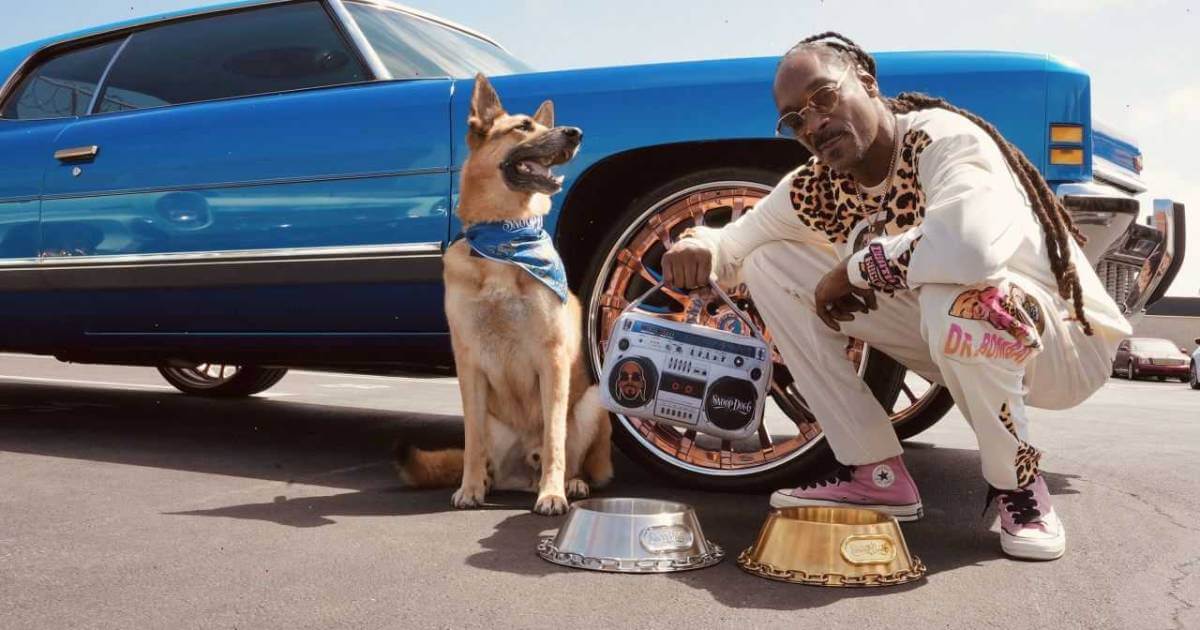Adopting the Pet Lifestyle

Consumers around the world adopted four-legged family members during the pandemic, and now those pets are inspiring a fashion-forward lifestyle (with outfits and accessories that rival those of their owners).
In recent months, pet-focused licensing deals have expanded beyond the standard toys, collars, leashes, and food to focus on everything from gingham overall dresses to denim jackets.
A number of fashion-focused items were at the heart of SportPet Design’s Dolly Parton-licensed line that launched through the Doggy Parton and Amazon websites. Then there was rapper Snoop Dogg’s licensed Snoop Doggie Doggs line, which was developed by Little Earth Productions. It launched November 17 and stretches from the more typical collars, leashes, and bowls to include hoodies, pajamas, and jerseys that feature an image of the rapper as well as phrases like “Throw a Dogg a Bone.” And retail chain PetSmart introduced G. Mason Group’s licensed Build-a-Bear products this month, including a holiday-friendly red plaid dog sweater.
“One thing that is clear, especially since the pandemic, is that pets are increasingly viewed as an extension of the family, and that includes lifestyle,” a licensing executive said. “With so many companies trying to get a piece of the business, licensing a brand can provide quick entry into a market.”
And there’s no shortage of retailers seeking to gain entry into, or an expansion of, the pet business in order to meet consumer demand. Sam’s Club, for example, recently introduced Bark’s products through 600 stores and Lowe’s has brought Petco in-store displays into 14 locations in order to provide a mix of pet-centered products from dog beds to items that are focused on health and wellness.
Yet despite the recent influx of celebrity brands—something not uncommon in the pet business—licensees must make sure the brand matches the category. Pet-centric licensing deals for some cooking and housewares brands fell short of forecast sales, for example, but those for Harry Potter products have succeeded, said Matthew Meeker, CEO of Bark Inc.
“Companies are anxious to get into the pet licensing business because they see its success,” Fetch For Pets CEO Steven Shweky said. “But what they don’t realize is that the success lies in the consumables end of the business, like pet care, treats, and foods. Right now, people will license almost any brand for pets, but the key question is ‘what expertise does the brand lend to the licensed product?’ If you can’t answer that, the brand is doomed to fail.”
It’s also crucial for retailers to consider the type of consumer who sees their pet as part of the family in terms of what their other interests are and how they might include their pets in those hobbies. For example, Hot Topic carries pet products through its Box Lunch chain, which caters to 25- to 40-year-old consumers. Its namesake stores don’t carry the category since those locations typically cater to teenagers, said Ed Labay, EVP and GM for merchandise, marketing, and licensing at Hot Topic and who recently also assumed merchandising responsibilities for Box Lunch.
Rather than focusing on those teen consumers, the company is exploring other demographics and offering pet products that might appeal to their specific interests. For example, pet merchandise is also sold as a part of cosplay where pets and their owners share a similar theme, Labay said.
“There is definitely a market for it, but it is not as broad as people think. For us, completing your cosplay is a big part of it. But I am interested in the price point because that might be one of the hardest barriers for licensed goods and whether people will pay the up-charge for those products,” said Labay. “Hot Topic will continue to dabble in [the pet category], but until we see it resonate with consumers in a strong way, I think we will leave it at Box Lunch.”




